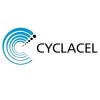
Trial to Test the Effects of Adding 1 of 2 New Treatment Agents to Commonly Used Chemotherapy Combinations...
Acute Myeloid LeukaemiaMyelodysplastic SyndromeThe AML18 Trial will evaluate several relevant therapeutic questions in Acute Myeloid Leukaemia (AML), as defined by the WHO, and High Risk Myelodysplastic Syndrome. The trial is primarily designed for patients over 60 years considered fit for an intensive chemotherapeutic approach, but younger patients who may not be considered suitable for the concurrent NCRI AML Trial for younger patients may also enter. Patients for whom intensive chemotherapy is not thought suitable may enter the concurrent NCRI trial of less intensive therapy (LI1). Approximately 1600 patients will be recruited. At entry, a randomisation will compare a standard chemotherapy schedule DA (Daunorubicin/Ara-C) combined with 1 dose of Mylotarg (gemtuzumab ozogamicin, or GO) in course 1 against CPX-351. Patients who have known adverse risk cytogenetics (using Grimwade 2010 classification favourable/intermediate/adverse) at diagnosis may enter a Phase 2 evaluation of the combination of Vosaroxin plus Decitabine. Patients who achieve complete remission (CR) and who are MRD negative by flow cytometry after course one of DA will receive one further course of DA, with a randomisation to receive, either a course of DA or intermediate dose Cytarabine (IDAC) as a third course. Patients who are MRD negative by flow cytometry after course one of CPX-351 will receive up to 2 further course of CPX. Patients who fail to achieve a CR after course 1 of DA or who are MRD positive by flow cytometry or for whom MRD information is not available, are eligible to be randomised to compare DA with DA plus Cladribine (DAC) or FLAG-Ida for up to two courses of therapy. Patients who fail to achieve a CR after course 1 of CPX-351 or who are MRD positive by flow cytometry or for whom MRD information is not available are eligible to be randomised between a second course of standard dose CPX versus a repeat of the course 1 schedule. Patients receiving Vosaroxin and Decitabine are excluded from these post course 1 randomisations . Following the outcome of course 1, patients who received DA chemotherapy on course 1 will be randomised to receive further chemotherapy with the 2nd generation FLT3 inhibitor AC220. Patients randomised to AC220 will be allocated a maximum of 3 courses (short AC220) or 3 courses plus maintenance for 1 year (long AC220). Patients receiving Vosaroxin and Decitabine are excluded from this randomisation. Patients will be eligible for a non-intensive allogeneic stem cell transplant if a suitable HLA matched donor is available.

Early Response Assessment of Induction Chemotherapy in Acute Myeloid Leukemia Patients Using F-18...
Acute Myeloid LeukemiaThe purpose of this study is to investigate whether F-18 FLT PET/CT is useful in early response assessment of induction chemotherapy in acute myeloid leukemia patients.

Transplant T CD4+ CCR7+ In Hematopoietic Stem Cells Allograft
Acute Myeloblastic LeukemiaThis is a preclinical study prior to the establishment of a cell therapy protocol applicable to humans. The main objective is to evaluate the decrease in alloreactivity of TCD4 + population by partial selective depletion of CD4 + CCR7 + graft to less than 50 % of CD4 + totals. To test the alloreactivity of donor T lymphocytes.

Study of Sapacitabine in Acute Myeloid Leukemia (AML) or Myelodysplastic Syndromes (MDS)
Acute Myeloid LeukemiaMyelodysplastic SyndromesThis is a combination study to evaluate sapacitabine administered in alternating cycles with decitabine in previously untreated Acute Myeloid Leukemia (AML) or concomitantly with venetoclax in previously treated AML or MDS

FLAG+Ida With G-CSF Priming for Patients Younger Than 60 Years With Resistant AML
Acute Myeloid Leukemia- To determine the feasibility of fludarabine and cytarabine as continuous infusion plus idarubicin with granulocyte-colony stimulating factor priming for patients with resistant acute myeloid leukemia other than acute promyelocytic leukemia

Tacrolimus and MMF as Post Grafting Immunosuppression After Conditioning With Flu TBI for HLA Matched...
Multiple MyelomaLymphoma3 morePrimary Objective: A. To determine whether stable allogeneic hematopoietic engraftment can be safely established in patients receiving a non-myeloablative allogeneic SCT from a matched sibling donor, with fludarabine and low-dose TBI, with pre- and post-transplant immunosuppression with tacrolimus and MMF. B. To evaluate the incidence of grade II-IV GVHD associated with this treatment.

3 Anthracyclines, 2 Types of Consolidation With Different ARA-C Doses and Maintenance in Adult Acute...
Acute Myeloid LeukemiaThe goal: to evaluate the role of high dose ara-c plus idarubicin and mitoxantrone consolidation followed by maintenance in the setting of high total cumulative anthracyclines dose(720-660 mg/m2).

Family-mismatched/Haploidentical Donors Versus Matched Unrelated Donors
Acute Myeloid LeukemiaThis study will compare the clinical outcomes of transplants from family-mismatched/haploidentical donors (FMT) with transplants from 8/8-matched unrelated donor (MUT), which is a current gold standard donors when lacking of HLA-matched-siblings Primary objectives: Overall survival of FMT may be similar to that of MUT Secondary objectives: i. Comparison of disease-free survival, relapse, non-relapse mortality, immune reconstitution cytomegalovirus infection, and acute or chronic graft-versus-host disease between FMT and MUT. ii. Investigation of possible biomarkers related with above events after transplantation

Treating Patients With Childhood Acute Myeloid Leukemia With Interleukin-2
LeukemiaThe purpose of this study is to evaluate the interest of maintenance treatment with interleukin-2 by randomizing the patients being not allogeneic transplanted in complete remission after induction and consolidation chemotherapy concerning the event free survival.

King's Invasive Aspergillosis Study II
Aplastic AnemiaLeukemia4 moreInvasive fungal disease (IFD) is an important cause of mortality and morbidity in patients undergoing intensive chemotherapy or transplantation. This current study aims to assess the impact of prophylactically using the broad-spectrum anti-fungal agent posaconazole on the incidence of IFD in high risk patients with aplastic anaemia and those undergoing intensive chemotherapy, for example for acute myeloid leukaemia, and allogeneic stem cell transplantation.
